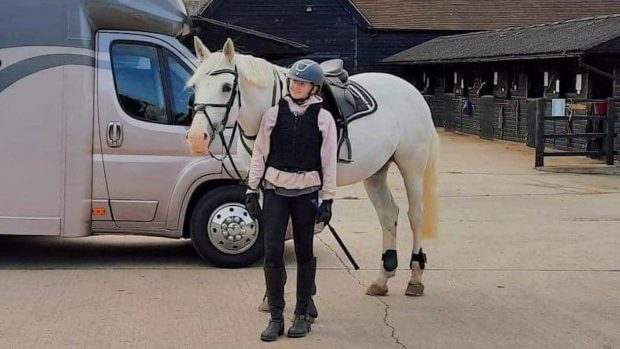Suspected fractures
If your horse suddenly goes very lame, first look carefully at the foot, as most lameness is due to something in the foot rather than a fracture.
A broken leg should be suspected when:
- a horse is suddenly unable to bear any weight on the limb
- a loud crack is heard prior to the onset of lameness
- the limb is totally unstable and possibly bent at an unusual angle.
- the horse is in extreme pain.
Action plan
Contact your vet immediately requesting emergency veterinary attention. Ensure he knows the potential seriousness of the situation.
While you are waiting, you should cover the injured horse with a coat or rug as a horse that is in shock will feel cold.
Keep him quiet and still. If you find a horse in this state in the field, do not move him.
Put on his headcollar and make sure he does not try to move on his injured limb.
Food is often a good way of calming them, so keep hay and a bucket of feed handy.
Organise transport in advance, so everything is ready if the horse has to be moved.
Horses with a leg injury may find it easier to walk up a gentle trailer ramp than a steeper one into a horsebox.
Regrettably, many fractures in the horse are untreatable, particularly when there is an open wound with the bonevisible through the skin. In these cases, the tissue damage and infection will be overwhelming.
The majority of broken long bones of the upper hind and fore limb will also be impossible to repair.
Other lower limb fractures are potentiallyrepairable, but your horse will be facing a long course of surgical treatment.
In many cases, euthanasia is the kindest course of action.
However, many suspected fractures are relatively easy-to-repair bone chips rather than complete fractures, or maybe other causes of sudden severe lameness such as a locking patella.
So, don’t despair. Obtain immediate veterinary help and a diagnosis as soon as possible.
| Click here to subscribe to HORSE magazine, which is packed with horsecare features every month |



